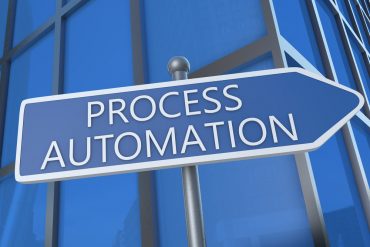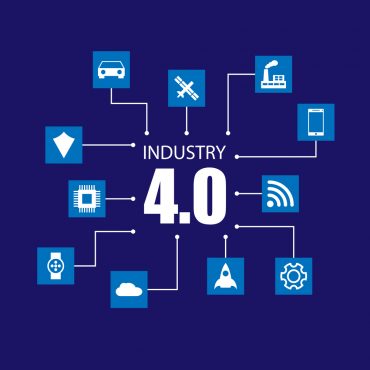
In this week’s real-time analytics news: The Whitehouse issued an Executive Order addressing AI safety and security.
Keeping pace with news and developments in the real-time analytics market can be a daunting task. Fortunately, we have you covered with a summary of the items our staff comes across each week. And if you prefer it in your inbox, sign up here!
President Biden issued an Executive Order that seeks to establish new standards for AI safety and security, protect Americans’ privacy, advance equity and civil rights, promote innovation and competition, advance American leadership in AI around the world, and more.
As part of the Biden-Harris Administration’s strategy for responsible innovation, the Executive Order builds on previous White House actions, including work that led to voluntary commitments from 15 leading companies to drive safe, secure, and trustworthy development of AI.
One aspect of the Executive Order focuses on ensuring responsible and effective government use of AI. To ensure the responsible government deployment of AI and modernize federal AI infrastructure, the Executive Order directs the following actions:
- Issue guidance for agencies’ use of AI, including clear standards to protect rights and safety, improve AI procurement, and strengthen AI deployment.
- Help agencies acquire specified AI products and services faster, more cheaply, and more effectively through more rapid and efficient contracting.
- Accelerate the rapid hiring of AI professionals as part of a government-wide AI talent surge led by the Office of Personnel Management, U.S. Digital Service, U.S. Digital Corps, and Presidential Innovation Fellowship. Agencies will provide AI training for employees at all levels in relevant fields.
Real-time analytics news in brief
Amazon Web Services (AWS) announced the general availability of Amazon Elastic Compute Cloud (EC2) Capacity Blocks for ML, a consumption model that enables any customer to access highly sought-after GPU compute capacity to run their short-duration machine learning (ML) workloads. With EC2 Capacity Blocks, customers can reserve hundreds of NVIDIA GPUs colocated in Amazon EC2 UltraClusters designed for high-performance ML workloads.
Airbyte announced its “Powered by Airbyte” version that enables developers and makers of software to embed over 100 integrations into their applications. Using Airbyte’s library of connectors enables rapid data movement and synchronization between various sources and destinations. This approach liberates engineering teams from the burdensome task of integration development, letting them redirect their resources to building out their product’s features and capabilities.
BMC announced new AIOps capabilities for the BMC Helix Operations Management solution using its BMC HelixGPT capability. The BMC Helix Operations Management solution transforms IT operations with out-of-the-box service blueprints for dynamic service modeling, easy-to-read situation explainability, and situation fingerprinting to remember similar situations. It also improved deep container auto-detection for an in-depth understanding of containerized environments.
DataStax announced the launch of RAGStack, an out-of-the-box RAG solution designed to simplify the implementation of retrieval augmented generation (RAG) applications built with LangChain. RAGStack reduces the complexity and choices that developers face when implementing RAG for their generative AI applications with a streamlined, tested, and efficient set of tools and techniques for building with LLMs.
Dell Technologies is collaborating with Meta to make it easy for Dell customers to deploy Meta’s Llama 2 models on premises with Dell’s generative AI (GenAI) portfolio of IT infrastructure, client devices, and professional services. The collaboration simplifies the on-premises AI environment by bringing together Dell’s top-selling infrastructure portfolio and the Llama 2 family of AI models.
Denodo announced significant enhancements to the Denodo Platform. The latest features provide all stakeholders with a strong foundation of reliable, trustworthy data to enable better cloud and data lake access and ensure strong performance. The solution enables self-service BI, data science, hybrid/multi-cloud data integration, and enterprise data services to ensure organizations get the most value from their strategic business initiatives.
Domino Data Lab announced new capabilities for building AI, including Generative AI (GenAI), rapidly and safely at scale. Domino AI Project Hub includes templates to build machine learning models for classic regression and classification tasks, advanced applications such as fault detection using computer vision, and GenAI applications using the latest foundation models from Amazon Web Services (AWS), Hugging Face, OpenAI, Meta, and others. Domino and NVIDIA are creating templates based on the NVIDIA NeMo framework and other NVIDIA AI software to help developers build, customize, and deploy generative AI virtually anywhere.
Ensono announced Ensono Cloud-Connected Mainframe for Microsoft Azure, a solution designed to help clients take advantage of Microsoft’s cloud platform and AI by offering a seamless integration between mainframe environments and Microsoft Azure. The solution delivers a low-latency network connection between the mainframe data center and an Azure region, optimizing application performance, and facilitating deployment of core business applications that leverage both cloud and mainframe capabilities.
Fivetran announced the launch of two new software developer kits (SDKs) for data source connectors and target destinations. These new SDKs enable third-party vendors to easily develop new connectors and destinations on Fivetran’s platform – unlocking compatibility with their product and Fivetran’s network of 400+ connectors, 14 destinations, and 45,000+ users across the globe.
Grafana Labs announced new Grafana Cloud capabilities designed for Kubernetes platform teams seeking to reduce cloud costs and gain more unified monitoring experiences across their entire cloud-native infrastructure. With today’s announcement, Grafana Cloud is easier to get started with observability and includes a forever-free tier that gives platform teams more insight under one roof than other observability tools for Kubernetes environments.
Honeycomb announced it is launching Honeycomb for Kubernetes. This new capability enables platform engineers running Kubernetes and the developers building on it to correlate granular application issues in production code with their infrastructure layer. Honeycomb for Kubernetes is available now to all Honeycomb users.
IBM introduced the new IBM Storage Scale System 6000, a cloud-scale global data platform designed to meet today’s data-intensive and AI workload demands. The IBM Storage Scale System 6000 is optimized for storing semi-structured and unstructured data, including video, imagery, text, instrumentation data, etc., that is generated daily and accelerates an organization’s digital footprint across hybrid environments.
Immuta announced the release of Immuta Discover, a new product for automated tagging and classification on cloud data platforms. It enables data teams to establish and maintain highly accurate metadata for the primary purpose of data access control, monitoring, and regulatory compliance. Leveraging this and other metadata allows data teams to scan, classify, and tag data so they can apply data control policies and monitor data access easily and accurately.
Imply announced the launch of its Developer Center. Imply’s Developer Center has been designed with the developer community in mind. It serves as a unified destination and an immersive experience for learning new technical concepts and architectural patterns, experimenting with fresh ideas on new projects, and expediting the development of analytics applications powered by Druid.
Kubecost announced that it has added cloud cost support to the open-source project, OpenCost. This addition allows OpenCost to support accessing provider billing and cloud cost visibility beyond Kubernetes across AWS, Azure, and GCP — with support for more platforms to come.
Lightbend announced the release of its latest version of Akka, which incorporates a new programming model that enables developers to build an application once and have it work across both cloud and edge environments. With this new version, Akka offers a model that allows teams to quickly build a single cloud-native application for both cloud and edge environments.
Microsoft and Siemens are deepening their partnership by bringing the benefits of generative AI to industries worldwide. As a first step, the companies are introducing Siemens Industrial Copilot, an AI-powered jointly developed assistant aimed at improving human-machine collaboration in manufacturing. In addition, the launch of the integration between Siemens Teamcenter software for product lifecycle management and Microsoft Teams will further pave the way to enabling the industrial metaverse. It will simplify the virtual collaboration of design engineers, frontline workers, and other teams across business functions.
Red Hat announced the general availability of Red Hat Ansible Lightspeed with IBM watsonx Code Assistant, a generative AI service to help enterprises accelerate IT automation across an organization. Red Hat Ansible Lightspeed generates content recommendations from user prompts, integrating with IBM watsonx Code Assistant to access IBM foundation models and quickly build Ansible content. The service is purpose-built for Ansible, helping users bridge the gap between automation ideas and Ansible content creation.
SAP unveiled SAP Build Code to empower developers with generative AI capabilities. SAP Build Code offers pro-code tools for developers to build applications and extensions rapidly, integrate seamlessly, and collaborate effectively — all on the company’s unified SAP Business Technology Platform (SAP BTP). Additionally, SAP announced that it has joined the Stanford HAI (Institute for Human-Centered AI) Corporate Affiliate Program.
Solo.io announced the release of Gloo Mesh Core, a new product aimed at accelerating service mesh adoption in the enterprise. Drawing from Solo.io’s expertise in building large-scale service mesh deployments for the Fortune 500, Gloo Mesh Core provides SLA-backed support for both Istio and Cilium, coupled with intuitive lifecycle management capabilities and advanced observability features for faster troubleshooting.
Snowflake announced new innovations that enable all users to securely tap into the power of generative AI with their enterprise data — regardless of their technical expertise. Specifically, Snowflake is simplifying how every organization can securely derive value from generative AI with Snowflake Cortex (private preview), which is Snowflake’s new fully managed service that enables organizations to discover, analyze, and build AI apps in the Data Cloud more easily.
If your company has real-time analytics news, send your announcements to [email protected].
In case you missed it, here are our most recent previous weekly real-time analytics news roundups:
- Real-time Analytics News for the Week Ending October 28
- Real-time Analytics News for the Week Ending October 21
- Real-time Analytics News for the Week Ending October 14
- Real-time Analytics News for the Week Ending October 7
- Real-time Analytics News for the Week Ending September 30
- Real-time Analytics News for the Week Ending September 23




























